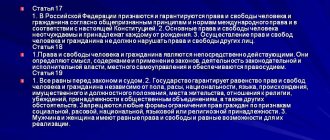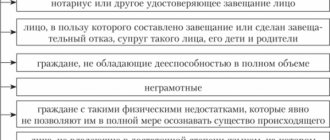The duty of a citizen is to perform the tasks assigned to him by the Constitution of the country. Moreover, these duties are important and universal, therefore everyone must comply with them. There are several basic responsibilities that fall on the shoulders of every citizen. For example, respect the law of the country, take into account the interests of other persons, which are provided for by law. This helps maintain public order in the country.
Responsibilities of a citizen of the Russian Federation: what they are
To find out what responsibilities lie on each citizen, you need to familiarize yourself with the Constitution. There are several articles there that describe every nuance as best as possible. The constitutional duties of citizens are listed and described in the second chapter of the Constitution. One of the main postulates is the equality of every citizen between himself and the state. In addition to this, there are several more important responsibilities of people who want to remain law-abiding:
- The second part of the fifteenth article talks about the obligation associated with compliance with the Constitution and laws of the country.
- The third and second parts of the thirty-eighth article state that citizens must provide care to their minor children and parents who have become disabled due to age or illness.
- The third part of the seventeenth article states that people must respect the rights and freedoms of other people.
- The fourth part of the forty-third article deals with compulsory receipt of basic general education.
- The fifty-seventh article is devoted to the obligation to pay taxes and fees.
- The fifty-eighth article is devoted to the obligation to protect nature and the environment.
- The fifty-tenth article deals with the defense of the fatherland.
- The third part of the forty-fourth article states that citizens must take care of the cultural and historical monuments of their homeland.
Each point is very important and therefore requires more detailed consideration.
Responsibilities of Russians according to the Constitution of the Russian Federation. Reference
Compliance with the Constitution of the Russian Federation and laws of the Russian Federation
According to Part 2 of Article 15 of the Constitution of the Russian Federation, state authorities, local governments, officials, citizens and their associations are obliged to comply with the Constitution of the Russian Federation and laws.
This is the most important responsibility that lies with citizens. It should not be limited only to the Constitution of the Russian Federation and the legislative acts themselves. It contains a broader content, which can be defined as law-abiding. This means that citizens are also obliged to comply with the laws and by-laws of the constituent entities of the Federation, and acts of local self-government. Essentially, we are talking about compliance with the current Russian legislation, which includes acts not only of the highest legal force.
Respect for the rights and freedoms of others
According to Part 3 of Article 17 of the Constitution of the Russian Federation, the exercise of human and civil rights and freedoms should not violate the rights and freedoms of other persons.
Caring for children and disabled parents
Parts 2 and 3 of Article 38 of the Constitution of the Russian Federation establish two constitutional duties of citizens: 1. Caring for children and raising them is an equal right and responsibility of parents. 2. Able-bodied children who have reached 18 years of age must take care of disabled parents
The fulfillment of these duties is regulated by the Family Code of the Russian Federation (chapters 12–17).
Obtaining basic general education
According to Part 4 of Article 43 of the Constitution of the Russian Federation, every citizen is obliged to receive basic general education, and parents or persons replacing them are obliged to ensure that their children receive this education.
This constitutional obligation is specified in Article 63 of the Family Code of the Russian Federation.
Caring for historical and cultural monuments
According to Part 3 of Article 44 of the Constitution of the Russian Federation, everyone is obliged to take care of the preservation of historical and cultural heritage, to protect historical and cultural monuments.
Payment of taxes and fees
According to Article 57 of the Constitution of the Russian Federation, everyone is obliged to pay legally established taxes and fees.
The obligation to pay taxes and fees in a timely manner and in full is combined with certain rights of taxpayers established by law (to familiarize themselves with audit materials, appeal decisions of tax inspectorates, etc.). The Constitution adds to this that laws establishing new taxes or worsening the situation of taxpayers do not have retroactive effect.
Nature and environmental protection
According to Article 58 of the Constitution of the Russian Federation, everyone is obliged to preserve nature and the environment and treat natural resources with care. The obligation is specified by the Federal Law of the Russian Federation of January 10, 2002 No. 7-FZ “On Environmental Protection”.
Defense of the Fatherland
According to Article 59 of the Constitution of the Russian Federation, the defense of the Fatherland is the duty and responsibility of a citizen of the Russian Federation. The fulfillment of this obligation is regulated by the Federal Law of the Russian Federation of March 28, 1998 No. 53-FZ “On Military Duty and Military Service.”
The obligation is not mandatory for all citizens of the Russian Federation
All male citizens aged 18 to 27 who are not eligible for exemption or deferment from conscription are called up for military service. The possibility is provided for men and women to enter military service under a contract. There is criminal liability for evading conscription for military service.
By decree of the President of the Russian Federation of January 25, 1996, individual representatives of talented youth (up to 500 people annually) are granted the right to a deferment from conscription for military service.
Citizens whose beliefs or religion are contrary to military service have the right to replace military service with alternative civilian service.
The procedure for performing alternative service is established in accordance with the Federal Law of the Russian Federation of July 25, 2002 No. 113-FZ “On Alternative Civil Service”.
The obligation to defend the Fatherland does not apply to citizens if the military formations of the Armed Forces of the Russian Federation in which they serve are sent outside the territory of the Russian Federation to participate in peacekeeping activities.
Responsibilities of a citizen to comply with the Constitution and laws of Russia
The conditions and requirements that are spelled out in the Constitution of the country are binding not only on individual citizens. Of course, ordinary people are obliged to fulfill them, but the requirements under consideration also apply to bodies vested with state power and working in the field of local self-government. In addition, the duties of a citizen also apply to officials, to some extent, even to a greater extent than to an ordinary person.
Please note that compliance with the norms prescribed in the Constitution is mandatory, but this rule can be interpreted more broadly. The word that best fits here is law-abiding. Moreover, you need to adhere not only to those laws that apply throughout the country, but also to local ones. That is, we have to take into account not only acts that have the highest legal force. Moreover, some norms change periodically, so it is necessary to take into account the variability in question. If any changes have been made, they must be taken into account while complying with the law.
Payment of taxes and fees
Everyone is obliged to pay legally established taxes and fees (Article 57 of the Constitution of the Russian Federation). This is an elementary requirement for a person and citizen who lives in society and enjoys the benefits of government activities. With the help of taxes, the state ensures the defense capability and safety of citizens, develops the economy, education, science, and healthcare in the interests of the entire society. However, taxes and fees can only be established by laws, and not by secondary legal acts.
The Tax Code of the Russian Federation establishes that taxes are divided into federal, constituent entities of the Federation and local. They are paid in certain amounts and within predetermined periods. Taxpayers bear administrative and, in some cases, criminal liability for tax evasion and violation of tax payment procedures.
The Constitutional Court of the Russian Federation noted in its resolution of March 21, 1997 that the general principles of taxation and fees are among the basic guarantees, the establishment of which by federal law ensures the implementation and observance of the foundations of the constitutional system, fundamental rights and freedoms of man and citizen, and the principles of federalism in the Russian Federation.
However, the obligation to pay taxes and fees in a timely manner and in full is combined with certain rights of taxpayers established by law (to familiarize themselves with audit materials, appeal decisions of tax inspectorates, etc.). The Constitution adds to this that laws establishing new taxes or worsening the situation of taxpayers do not have retroactive effect.
Responsibilities of a citizen in caring for children and parents who have become disabled
The position in question has two sides at once, which are enshrined in the Constitution. Thus, the constitutional duties of citizens can be divided into two parts. So the first one talks about the fact that it is the responsibility of parents to ensure that their children have everything they need for their normal development. In addition to the obligation, this task can be considered the right of every parent. It doesn’t matter whether we are talking about the biological fact of kinship or obtained as a result of adoption. The second part states that children who have become adults must show concern for their parents if they become incapacitated. You can read more about the nuances of the requirements under consideration in the Family Code.
Caring for historical and cultural monuments
Everyone is obliged to take care of the preservation of historical and cultural heritage, to protect historical and cultural monuments (Part 3 of Article 44 of the Constitution). It is clear that this responsibility cannot rest solely with the state; moreover, many cultural values are privately owned by citizens. Relations in this area are regulated by the Fundamentals of the Legislation of the Russian Federation on Culture, the Law of the Russian Federation “On the Protection and Use of Historical and Cultural Monuments” (as amended on June 25, 2002). The Decree of the President of the Russian Federation dated February 20, 1995 approved the List of objects of historical and cultural heritage of federal (all-Russian) significance, including such objects from all regions of the country.
This constitutional duty is aimed at preserving the material and spiritual values of the multinational people of Russia and developing their culture.
Responsibilities of man and citizen to defend the fatherland
Another integral task of a Russian is to defend his country. But these duties of a citizen do not apply to all residents of the country. They apply only to young men (18-27 years old), unless they are exempt from conscription or given a deferment. Women can enter military service through a contract, as can men who do not want to do military service. If a person must undergo compulsory service, but evades it, he is threatened with criminal liability.
The following citizens can receive a deferment or exemption:
- Some representatives of talented youth. They are offered the opportunity to defer conscription. But only no more than 500 people per year.
- Persons whose beliefs or religion do not allow them to perform military service. They may exercise the right to perform alternative civilian service.
Individuals and military formations engaged in peacekeeping missions in other countries are not required to defend the fatherland.
You can get legal assistance regarding the duties of a citizen of the Russian Federation on our website.
Conservation of nature and environment
There is no greater danger for the survival of humanity than the destruction of nature, pollution of air, land and water bodies. Preservation of the environment is recognized by the world community as the primary task and duty of not only every state, but also every person on the planet. The Constitution of the Russian Federation states: “Everyone is obliged to preserve nature and the environment, to treat natural resources with care” (Article 58).
The constitutional obligation is specified in a number of legislative acts. Thus, the Federal Law “On Environmental Protection” (as amended on December 31, 2005) enshrines the obligation of citizens to take care of nature and natural resources, and to comply with legal requirements. The obligation to protect forests is fixed in the Forest Code of the Russian Federation. The Federal Law “On Wildlife” introduces a number of responsibilities of citizens (to comply with established rules, norms and terms for the use of wildlife, to prevent destruction or deterioration of the habitat of animals, to ensure the protection and reproduction of objects of the animal world, to use humane methods when using wildlife, etc. ). Other environmental regulations are also in effect.
For violation of environmental legislation, property, administrative and criminal liability is established.
Legal rights
A person has the opportunity to defend his rights and freedoms by contacting the authorities and the court. For this purpose, political, socio-economic and personal rights of citizens are prescribed in civil proceedings. Security is also covered by the Criminal Procedure Code.
The provision of legal, qualified legal assistance is carried out by a college of lawyers, whose assistance is provided free of charge to citizens of the Russian Federation. A detained or suspected citizen may benefit from the assistance of a human rights defender (lawyer). Mandatory participation of lawyers is provided for in cases involving minors, blind, deaf, dumb and persons with other physical disabilities who will not be able to carry out their own defense.
Only the court finds the accused guilty; until the court makes a decision, the presumption of innocence applies . There is also a law: do not testify against yourself and your loved ones. And this cannot be a reason for criminal prosecution.
Citizens have the opportunity to compensate for damage caused by illegal actions of officials or government bodies. For example: illegal seizure of personal belongings, their loss, unreasonable restriction of freedom. Compensation is assigned after the court determines guilt .
A citizen has the right to protection of honor and dignity, which are equal in value to life and health. According to the Civil Code, a person can demand a refutation of false information and compensation from its distributor (Article 7 of the Civil Code).
According to the Criminal Code, the subject is liable for insult and knowingly false information and other attacks on honor and dignity (Articles 129, 130 of the Criminal Code of the Russian Federation).
Every citizen has the right to personal housing; the law establishes the inviolability of his home. Residence of other persons, searches and other actions involving entry into private property can only occur on the basis of a court decision .
The law prohibits journalists from disseminating information that defames citizens. Receiving, transmitting, distributing information is carried out only in a legal way.









